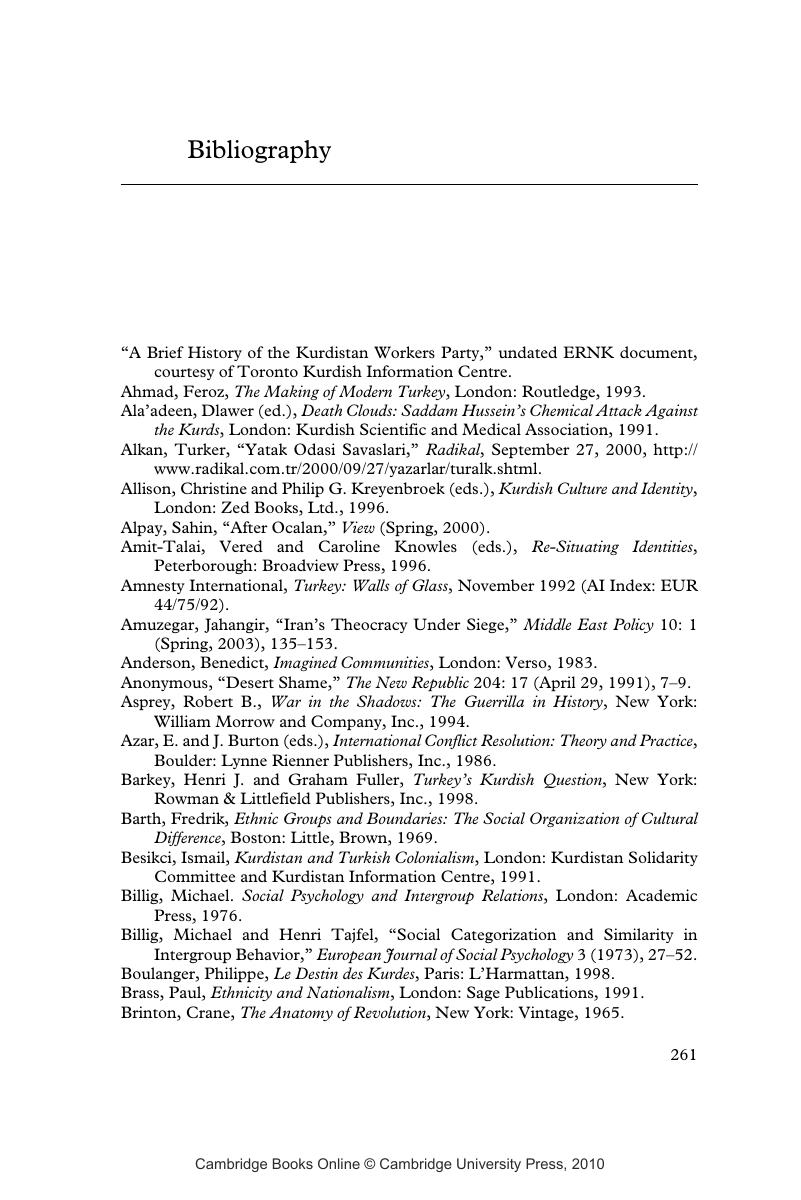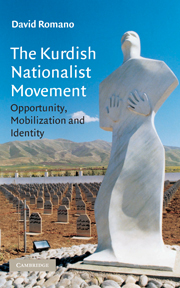Book contents
- Frontmatter
- Contents
- Acknowledgments
- List of acronyms and abbreviations
- Map
- 1 Making sense of ethnic nationalist resurgence
- 2 Structural conditions and political opportunities
- 3 Resource mobilization and rational choices
- 4 Cultural framing
- 5 Theoretical synthesis
- 6 Kurdish nationalist challenges to the Iraqi state
- 7 Kurdish nationalist challenges to the Iranian state
- 8 Conclusion
- Bibliography
- Index
- Cambridge Middle East Studies 22
- References
Bibliography
Published online by Cambridge University Press: 14 January 2010
- Frontmatter
- Contents
- Acknowledgments
- List of acronyms and abbreviations
- Map
- 1 Making sense of ethnic nationalist resurgence
- 2 Structural conditions and political opportunities
- 3 Resource mobilization and rational choices
- 4 Cultural framing
- 5 Theoretical synthesis
- 6 Kurdish nationalist challenges to the Iraqi state
- 7 Kurdish nationalist challenges to the Iranian state
- 8 Conclusion
- Bibliography
- Index
- Cambridge Middle East Studies 22
- References
Summary

- Type
- Chapter
- Information
- The Kurdish Nationalist MovementOpportunity, Mobilization and Identity, pp. 261 - 271Publisher: Cambridge University PressPrint publication year: 2006

